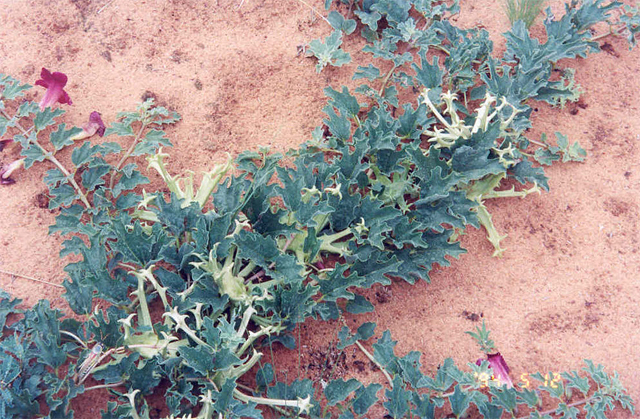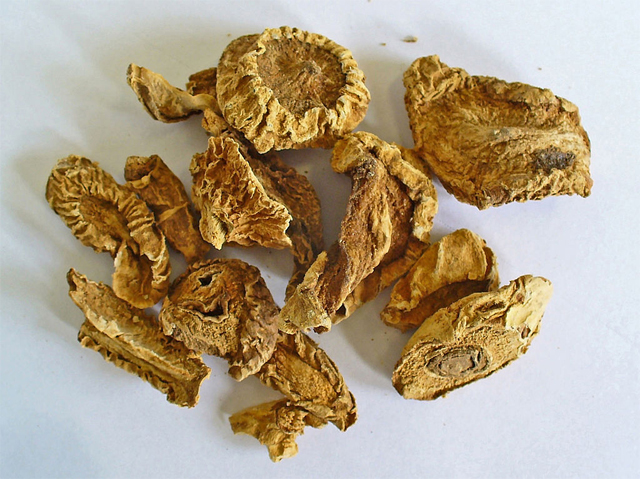The Ju/’hoansi San had another good year harvesting, curing and selling devil’s claw tubers from the surrounding Kalahari Desert. About 800 residents of the Nyae Nyae Conservancy and their closely-related neighbors to the west, the !Kung of the N#a Jaqna Conservancy, harvested about 32 tons of the desert plant roots this year, earning them nearly N$2 million (US$145,000).

The information is quite similar to earlier reports about the wild desert plants, their medicinal uses, and the growing business for the San people. The figures revealed in a news story last week about the 2018 harvest results, compared with similar reports from 2012, 2016 and 2017, show how the harvesting of the roots from the desert plants continues to grow. When the Ju/’hoansi and the !Kung gather the tubers, they are careful to meet the requirements of international certification to show that the products have been sustainably harvested. That certification has been an essential component of the continuing success of the devil’s claw business in the international health medicine market.
This year’s article reports on the social implications of the harvesting. Lara Diez of the Nyae Nyae Development Foundation indicates that the devil’s claw harvesting represents a significant source of income in an area where there is little other employment. She adds that the harvesting empowers the members of the conservancies, especially the women. Furthermore, it demonstrates that marginalized communities can produce for themselves once they have the means—they don’t need hand-outs to live.

Xoa//an /Ai!ae, the Chair of the Nyae Nyae Conservancy, said that the harvesting directly benefits the individuals, particularly the women, doing the work. The collectors will decide for themselves where to use the money. The reporter spoke with two women, N/haokxa Kaqece and Xoan Kxam/oo. They said that properly harvesting the devil’s claw tubers is important—if they are careless in their work, the plants could die, which would diminish the harvest the following year. They also expressed appreciation for the training they have received on how to process the devil’s claw products because “it is a medicine and we want to produce a good quality.”
The women went on to describe how the money they earn allows them to buy things they need such as clothes and food. They explained that otherwise they would suffer since they don’t have the opportunities that the Ju/’hoansi men have to earn money from doing small jobs.